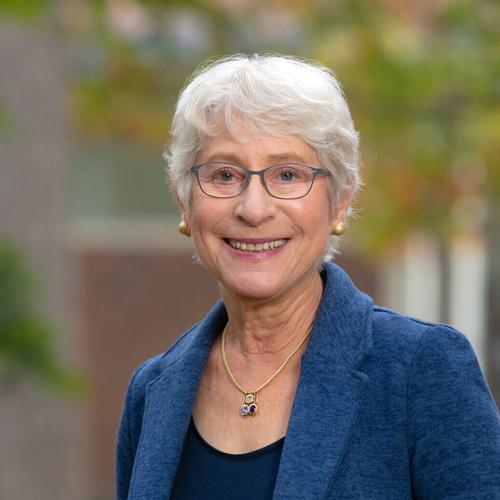
Nina Tumarkin
Kathryn Wasserman Davis Professor of Slavic Studies & Professor of History
Historian of Russia, current research on Russian historical memory of the Soviet past.
My current research project, Politics of the Past in Putin’s Russia, explores the many ways in which Russian political elites and groups from liberal oppositionists to ultra-nationalists have been remembering, celebrating, commemorating, condemning, condoning, forgetting, ignoring and grappling with the country’s troubled past and the vastly complex history and legacy of the Soviet experience in World War II and its fateful aftermath. I examine the historical politics informing the state’s protean “usable past” to support regnant political and social structures and norms. My work on the politics of multiple historical narratives builds on my previous books, The Living and the Dead: The Rise and Fall of the Cult of World War II in Russia and Lenin Lives! The Lenin Cult in Soviet Russia.
My courses at Wellesley have engaged generations of Wellesley students in topics ranging across more than a millennium of Russian history as well as that of Europe in the twentieth century. Many of my classes are framed in the context of the politics of history in both Russian and Western scholarship. For example, when we study Peter the Great or Lenin, we also consider how Joseph Stalin and Vladimir Putin envisioned and made use of particular representations of those leaders. I teach courses on Medieval, Imperial, Soviet and Post-Soviet history and a comparative history seminar on World War II as Memory and Myth, which explores historical narratives about the war in several belligerent countries including France, Germany, Japan, the US, Poland and, of course, Russia. I twice chaired the History Department and serve as longtime director of the College’s rich Russian Area Studies Program.
My affiliation with Harvard’s Davis Center for Russian and Eurasian Studies has been my longtime scholarly home in which for decades I have engaged in seminars, panels and collegial conversations. My past career has included the role of adviser to President Reagan, for whom I wrote two invited papers and served as one of six “Soviet experts” who briefed the President, Vice-President, and key cabinet members shortly before Mr. Reagan’s historic first meeting with Mikhail Gorbachev in November 1985 at the Geneva Summit. President Clinton read The Living and the Dead in preparation for his Victory Day visit to Moscow in 1995.
Over the past dozen years I have much enjoyed lecturing on Wellesley and Harvard alumnae/alumni travel study programs in many countries. My recent favorites were: a visit to Albania; a sojourn in Mongolia followed by an extended journey on the Trans-Siberian Railroad; lecturing on Japan’s memory of World War II in the Hiroshima Peace Memorial Museum; and cruising down the Volga River, visiting major sites connected with Russia in the seventeenth century. My hobby is singing Russian songs. (I suppose jogging around Wellesley’s lovely Lake Waban does not quite count as a hobby.)
LINKS
COURSES
HIST116 First-Year Seminar: Vladimir Putin: Personage, President, Potentate
HIST246 Vikings, Icons, Mongols, and Tsars
HIST247 Splendor and Serfdom: Russia Under the Romanovs
HIST248 The Soviet Union: A Tragic Colossus
HIST302 Seminar: World War II as Memory and Myth
Education
- B.A., University of Rochester
- M.A., Harvard University
- Ph.D., Harvard University
Current and upcoming courses
Firebird! The Russian Arts Under Tsars and Commissars
RAST222
The magical Russian Firebird—with its feathers of pure gold—embodies the creative genius and salvational glory of the Russian performing arts. In this course we will explore Russian ballet, opera, music, theater and poetry, and their place in the culture and history of Russia and the Soviet Union, from the age of Tolstoy to the Putin era, from Tchaikovsky’s Swan Lake to Pussy Riot, the feminist protest group. In addition to larger themes and movements, we will consider the contexts, histories, meanings—and, in some cases, iconic afterlives—of selected works and their masterful creators.
-
Firebird! The Russian Arts Under Tsars and Commissars
RAST322
The magical Russian Firebird—with its feathers of pure gold—embodies the creative genius and salvational glory of the Russian performing arts. In this course we will explore Russian ballet, opera, music, poetry and theater and their place in the culture and history of Russia and the Soviet Union, from the age of Tolstoy to the Putin era, from Tchaikovsky’s Swan Lake to Pussy Riot, the feminist protest group. In addition to larger themes and movements, we will consider the contexts, histories, meanings—and, in some cases, iconic afterlives—of selected works and their masterful creators. Normally open to Sophomores, Juniors and Seniors who have taken a 200-level unit in a relevant area/subject; additional classwork assigned.